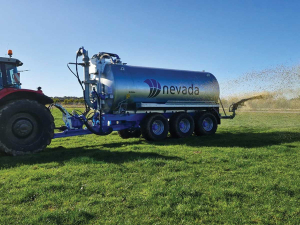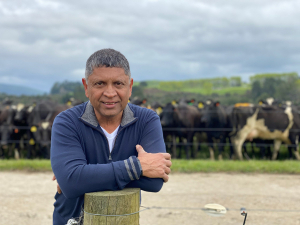Imagine transforming your dairy farm’s waste into a goldmine of savings and productivity.
Sounds too good to be true…it’s not. By changing how you view and use farm dairy effluent (FDE), you can boost your farm’s profits and improve soil health.
Soil biology: the hidden gem beneath your feet
Let’s dive into soil biology – the fascinating world beneath your boots. Your soil is teeming with life, from bacteria and fungi to earthworms and arthropods. These tiny workers play a vital role in maintaining soil health and fertility. When you apply effluent to your pasture, you’re feeding these organisms, enhancing their activity, and, in turn, boosting your soil’s health and productivity.
The power of effluent
Think of effluent not as a waste product but as a liquid treasure chest. It’s packed with nutrients that can significantly improve your soil’s biology. Healthier soil means better pasture production now and for years to come. Plus, spreading effluent across your entire farm amplifies these benefits, ensuring all your paddocks get a share of this natural fertiliser.
Breaking old habits
In New Zealand, it’s common for farmers to spread effluent close to the cowshed due to pump capacity, power availability, or the length of the irrigation mainline. But over-irrigating nearby paddocks can harm animal health and miss out on the full benefits of effluent. By spreading it across your entire farm, you can reduce or even eliminate the need for synthetic fertilisers.
Real savings, real results
Here’s where it gets exciting: One large dairy farmer in the Hawke’s Bay has slashed over $200,000 per year on fertiliser costs by spreading effluent using a slurry tanker. Utilising FDE effectively is not just an environmentally sound choice – it’s a smart financial move.
The slurry tanker advantage
One of the best ways to spread effluent evenly across your farm is with a slurry tanker. These versatile machines can handle everything from heavy slurry to more liquid effluent. They allow for low application rates and provide proof of placement, ensuring you’re applying nutrients precisely where they’re needed.
Transform your farm's future
It’s time to shift your mindset: Effluent isn’t waste – it’s a valuable resource. By leveraging this natural fertiliser, you can enhance your soil, cut costs, and boost your farm’s sustainability. Healthier soils lead to more productive pastures and, ultimately, a more profitable farm.
Ready to see these benefits on your farm? Have a chat with our team to discuss how we can help improve your farm’s profitability. Call us today on 0800 464 393 and start transforming your effluent into gold.
Article supplied by Nevada











